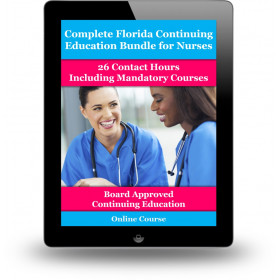- Description
-
Details
Participants will examine the acute and long-term physiological effects of cocaine, including cardiovascular, neurologic, and psychiatric complications. The content further explores the DSM-5-TR diagnostic criteria for CUD, co-occurring mental health conditions, and current standards for pharmacologic and behavioral treatment approaches. Emphasis is placed on trauma-informed care, harm reduction, and culturally competent interventions tailored to vulnerable and high-risk populations.
This course also highlights the clinical importance of early engagement and motivational interviewing techniques, which can help reduce resistance and build rapport with patients who may be ambivalent about treatment. Nursing professionals will be equipped to conduct structured assessments, interpret toxicology results, and identify red flags for polysubstance use and overdose risk. Furthermore, the module addresses the legal and ethical considerations in reporting, documentation, and confidentiality, especially in emergency settings.
Participants will explore recent clinical trials and emerging therapies under investigation for stimulant use disorders, with an emphasis on their applicability in various healthcare environments. Interdisciplinary collaboration, continuity of care, and referral pathways to addiction specialists and community-based programs are also discussed to ensure a holistic and sustained recovery process.
By the end of the course, nurses will be better prepared to advocate for comprehensive care plans that include both pharmacologic and psychosocial components, reduce stigma in practice, and improve outcomes for individuals living with Cocaine Use Disorder.
Upon successful completion of this course, participants will be able to:
- Describe the pharmacologic action of cocaine on the central nervous system and its impact on brain reward pathways.
- Identify DSM-5-TR criteria for Cocaine Use Disorder and distinguish between mild, moderate, and severe presentations.
- Recognize acute medical emergencies and chronic complications associated with cocaine use.
- Apply current clinical guidelines for screening, brief intervention, and referral to treatment (SBIRT).
- Evaluate treatment modalities, including cognitive behavioral therapy (CBT), contingency management, and pharmacotherapies under investigation.
- Address stigma and barriers to care through patient-centered and culturally responsive communication strategies.
Course Completion Requirements:
To complete this CE course and receive full credit, participants must:
To complete this CE course and receive full credit, participants must:
- Register for the course.
- Review all course materials.
- Complete the post-test with a passing score of 70% or higher.
- Submit the course evaluation survey.
Note: Some courses may include additional requirements, such as participation in discussion boards or completion of practice exercises.
Note: Some courses may include additional requirements, such as participation in discussion boards or completion of practice exercises.
Important Disclosures:
- Conflict of Interest: The course planners, authors, and presenters have no financial or commercial conflicts of interest related to this educational activity.
- Commercial Support: This course has not received any sponsorship or financial support from commercial entities.
- Non-Endorsement: Approval of this course as a continuing education activity does not imply endorsement of any products, services, or companies mentioned within the content.
- Off-Label Product Use: No information related to off-label use of FDA-approved products is included in this course.

Key Course Benefits:

- Offers 2 CE credit hours for nursing professionals.
- Provides a clinically rigorous overview of Cocaine Use Disorder and its multi-system implications.
- Enhances the capacity of nurses to screen, manage, and refer patients affected by stimulant use.
- Promotes safe, ethical, and stigma-free care across healthcare settings.
- Suitable for LPNs, RNs, CNSs, and ARNPs in both medical and behavioral health environments.
- Delivered through an accessible and self-paced online format.
Approvals and Accreditation:
The CE Learning Network (CELN) is an accredited provider of continuing education for nurses, recognized by the Florida Board of Nursing and the District of Columbia Board of Nursing.
This course adheres to the standards established by the American Nurses Credentialing Center’s Commission on Accreditation.
Approved for the following nursing professionals:
- Florida Board of Nursing: LPNs, RNs, CNSs, ARNPs
- District of Columbia Board of Nursing: RNs, Nurse Anesthetists, CNSs, Midwives, ARNPs
For added convenience, CELN automatically reports earned CE hours to CEBroker.com on behalf of participants.






 We report your course completions to CE Broker automatically so you are in compliance with the Florida board of nursing requirements
We report your course completions to CE Broker automatically so you are in compliance with the Florida board of nursing requirements




